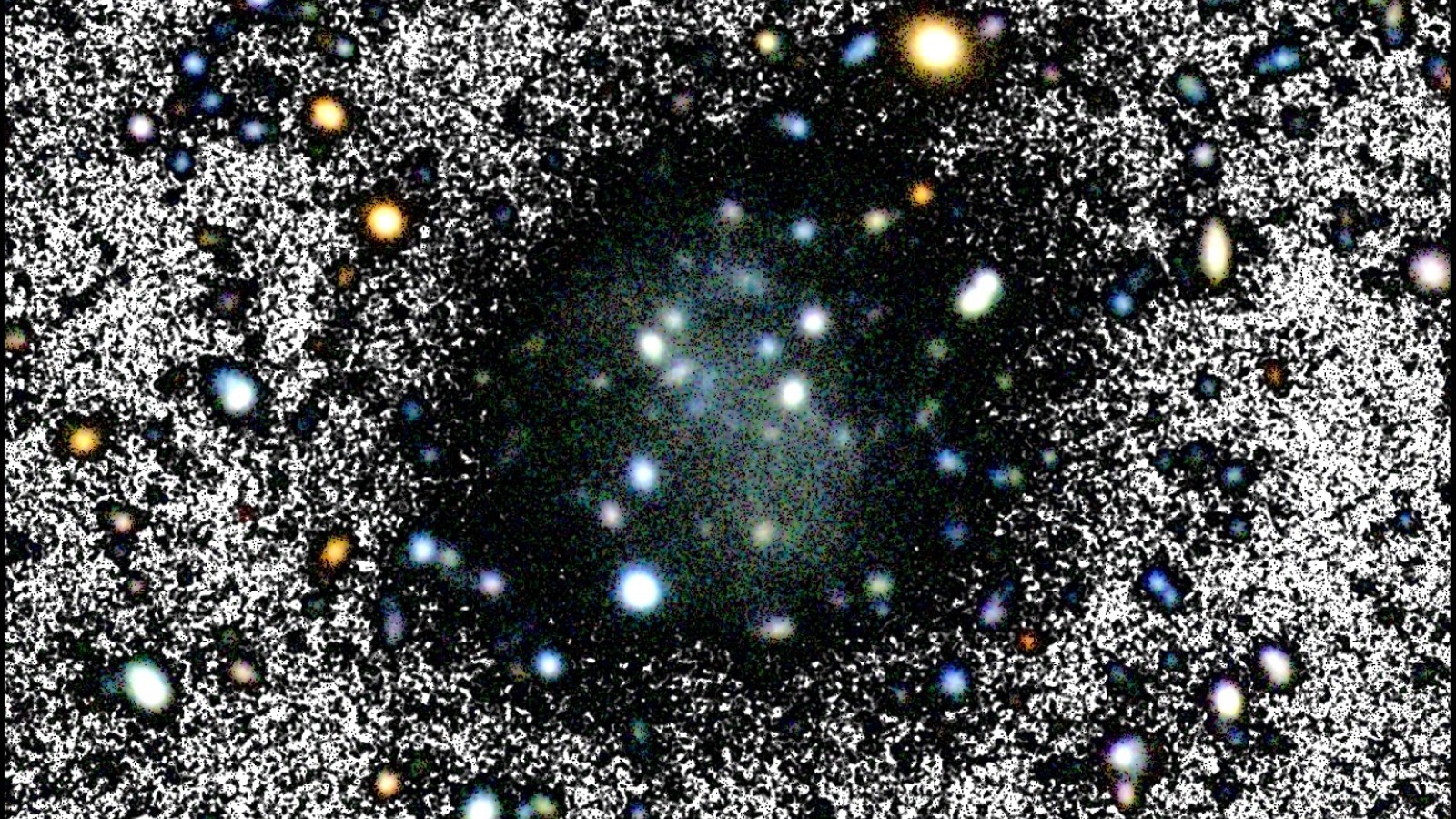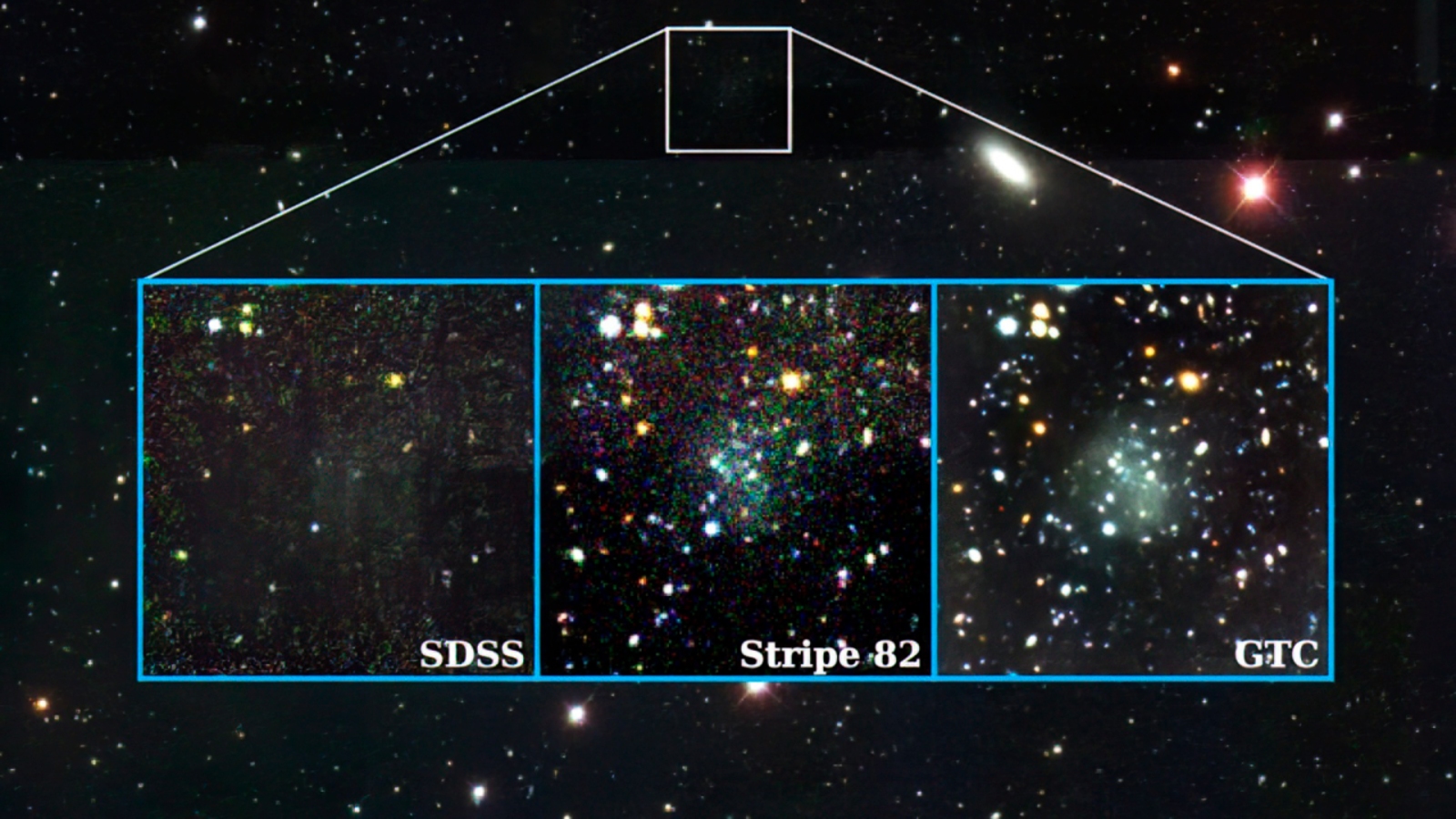
Scientists have discovered an "almost invisible" dwarf galaxy that cannot be explained by our current understanding of the cosmos. The mysteriously faint object, which has evaded detection for years, is so dim that researchers haven't even been able to pin down exactly where it is.
The newfound galaxy, named Nube (or "cloud" in Spanish), was described in a study published Jan. 9 in the journal Astronomy & Astrophysics. Nube is extremely diffuse, which means that its stars are very spread out and, as a result, the galaxy emits barely any light. It is around 10 times fainter than most other known dwarf galaxies and is more than 10 times wider than it should be considering the number of stars it has.
"With our present knowledge we do not understand how a galaxy with such extreme characteristics can exist," study lead author Mireia Montes, an astrophysicist at the Institute of Astrophysics of the Canary Islands, said in a statement.
The researchers discovered Nube when they reanalyzed data collected by the Sloan Digital Sky Survey — one of the largest and most detailed astronomical databases of the night sky — and spotted a small inconsistency that had gone unnoticed for years. After catching the anomaly, the team took ultra-deep multicolor images of the outlying coordinates using the Green Bank Telescope in West Virginia and the Gran Telescopio Canarias in La Palma, Spain.
But even then, Nube is so faint that the team cannot accurately pin down its exact distance from our own galaxy. The researchers suspect that it is around 300 million light-years from the Milky Way, and around a third of the size across. But further observations are needed to confirm this.

The general rule of galaxy formation is that a galaxy's density is highest at the core and decreases further out. But the concentration of stars in Nube "varies very little throughout the object, which is why it is so faint," Montes said.
The researchers can't explain how the galaxy is kept together when it has so little mass at its center, which would normally exert the gravity needed to keep the rest of the stars in place.
Normally, astronomers think such gravitational anomalies are caused by dark matter — a mysterious type of matter with unknown origins that does not react with light and supposedly makes up around 27% of the universe's mass. However, based on our current understanding of dark matter, there should not be enough of it to explain Nube's unusual properties.
"One possibility which is attractive, is that the unusual properties of Nube are showing us that the particles which make up dark matter have an extremely small mass," study co-author Ignacio Trujillo, an astrophysicist at the Institute of Astrophysics of the Canary Islands, said in the statement. If this were true, dark matter would be a "demonstration of the properties of quantum physics, but on a galactic scale," he added.
"If this hypothesis is confirmed, it would be one of the most beautiful demonstrations of nature, unifying the world of the smallest with that of the largest," Trujillo added. However, this is just one possible theory.
Whatever the cause of Nube's diffuse nature, the researchers are now on the hunt for similarly faint galaxies that could help unravel the mystery.
"It is possible that with this galaxy, and similar ones which we might find, we can find additional clues which will open a new window on the understanding of the universe," Montes said.







